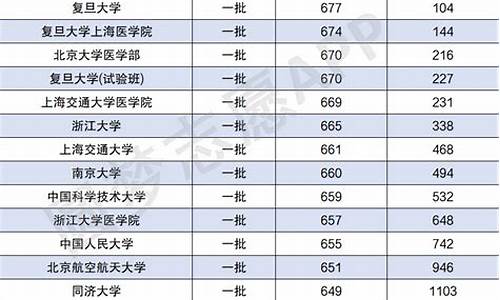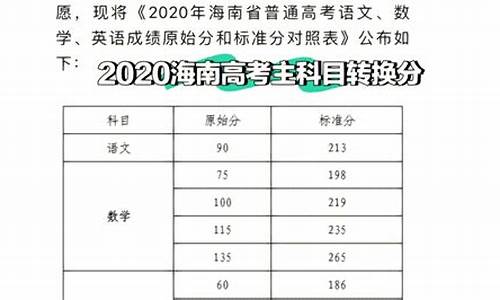您现在的位置是: 首页 > 教育改革 教育改革
高考动词表-高考动词教案
tamoadmin 2024-08-28 人已围观
简介1.英语高考必须掌握的所有系动词,谢谢,是所有的2.高考英语非谓语动词考点讲析教案3.高考常见的40个不及物动词4.高考常见的30个不规则动词变化英语高考必须掌握的所有系动词,谢谢,是所有的系动词系动词又称联系动词,作为系动词,它本身有词义,但不能单独用作谓语,后边必须跟表语(也称补语),构成系表结构说明主语的状况、性质、特征等情况。有些系动词又是实义动词,该动词表达实义时,有词义,可单独作谓语,
1.英语高考必须掌握的所有系动词,谢谢,是所有的
2.高考英语非谓语动词考点讲析教案
3.高考常见的40个不及物动词
4.高考常见的30个不规则动词变化
英语高考必须掌握的所有系动词,谢谢,是所有的

系动词
系动词又称联系动词,作为系动词,它本身有词义,但不能单独用作谓语,后边必须跟表语(也称补语),构成系表结构说明主语的状况、性质、特征等情况。
有些系动词又是实义动词,该动词表达实义时,有词义,可单独作谓语,例如:
He fell illyesterday.
(fall是系动词,后跟补足语,说明主语情况
He fell off theladder.
(fall是实义动词,单独作谓语。)
1)状态系动词
用来表示主语状态,只有be一词,例如:
He is a teacher.
(is与补足语一起说明主语的身份。)
2)持续系动词
用来表示主语继续或保持一种状况或态度,主要有keep, rest, remain, stay, lie, stand, 例如:
He always keptsilent at meeting.
This matter restsa mystery.
3)表像系动词
用来表示"看起来像"这一概念,主要有seem, ear, look, 例如:
He looks tired.
He seems (to be)very sad.
4)感官系动词
主要有feel, smell, sound, taste, 例如:
This kind of clothfeels very soft.
This flower smellsvery sweet.
5)变化系动词
表示主语变成什么样,有become, grow, turn, fall, get, go, come,run
He became madafter that.
She grew richwithin a short time.
6)终止系动词
表示主语已终止动作,主要有prove, trun out, 表达"证实","变成"之意,例如:
The rumor provedfalse.
The search proveddifficult. 搜查证实很难。
His plan turnedout a success. (turn out表终止性结果)
I、常见系动词错误及其成因:
(1)漏掉系动词
I afraid he won'tcome tomorrow .
( 2 )误用系动词
His hair changedgrey .(混淆了change 与turn,grow)
I.系动词分类:
一、根据系动词后所跟结构,分为两大类:完全系动词(其后只能跟表语的动词,如be)和半系动词(其后既可跟表语作系动词用法,也可跟宾语或状语作实义动词用,如look)
He looked sad atthe news.
(“看起来”,系动词用法)
He looks at aclever boy.
(“看着”,实义动词用法)
在英语中,某一动词是多义词,既有实义动词用法,又有系动词用法。常见的有:
listen, look ,touch ,hear,see ,sound ,feel, taste ,remain ,keep,stay, turn,become
二、根据系动词的意义,分为四类:
A.五大感官系动词 B.状态系动词
C.动态系动词 D.双谓语系动词
A.五大感官系动词,描述一种感官性质。由实义感官动词变化而来,都是半系动词
1.look“看起来像是”,后接adj.、n.、分词、介词短语、不定式等。
The girl bit herlips and looked thoughtful.
2.smell“闻起来”,后接adj.,分词。
The flowers smellsweet.
3.sound“听起来”,后接adj.,分词。
The music soundssweet.
4.taste“尝起来”,后接adj.,分词。
The les tastevery good.
5.feel①“摸起来,给……感觉”;②“觉得”,后接adj
The silk feelsvery soft.
You will feelbetter after a night’s sleep.
B.状态系动词:
1.be,“是”,完全系动词。
I am a student.
2.seem,“似乎,好像”,完全系动词。
They seem quitehy.
3.ear,“显得,看起来好像”,半系动词。
He eared tiredand sleepy.
It eared(tobe)a true story.
Now it ears tome that he may play an important part in settling the problem. (在我看来)
4.keep, “保持……的状态”,半系动词,后接adj或介词短语。
You’d better go to bed and keep warm.
5.remain,“仍是”,半系动词。
I remained silent.
6.stay“保持(某种状态)”,半系动词,后接adj.、过去分词。
The window stayedopen all the night.
7.prove “证明是”,半系动词,后接adj.,n.
The treatmentproved to be successful.
C.动态系动词:都属于半系动词,描述状态变化过程。
1.get“变成,变得……起来”,后可接形容词、分词、介词短语。
The days aregetting longer and longer.
The train didn’t get going again.
It’s nothing to get excited about.
My watch gets outof order.
2.fall“进入(某种状态),成为”,后常接以下形容词:
asleep, silent,ill, sick
The old man,unable to express himself, fell silent.
My father fell illand died.
3.grow“渐渐变得……起来,长得”
You will grow usedto it.
It’s growing warm.
4.turn“转变成(新的与原来完全不同的色彩或性质),变质(色)”。
Maple trees turnred in autumn.
It was cloudy thismorning, but fortunately it has turned fine.
He has turnedwriter.
(注意:此时writer之前无冠词a.)
5.go,“变成(某种坏的状态)”
The telephone hasgone dead.
The material hasgone a funny colour. (奇怪)
go之后常接的adj. 还有:bad, blind, wild, wrong, sour, hard, hungry,mad, red, with, anger, white, pale, blue, grey
6.become“变成,成为(好坏均可的情况)”
He became angrywith me.
It became dark.
They became goodfriends.
I becameinterested in drawing.
7.come,“变成为(已知的状态),证实为”,后接形容词或前缀un-的过去分词作表语,表示状态或情况的变化。
His wish to becomea pilot has come true.
If you look intothe matter, everything will come clear.
My shoelaces hecome undone.
后面常接的形容词还有:apart, dear(昂贵),natural,open, untied(松开)。
8.run,“变成”,后接adj.
The well has rundry.
The price ranhigh.
9.make,“达到某种状态[后接形容词],如sure, certain, merry, bold, free
We must makecertain of facts.
我们一定要弄清事实。
The Children makefree with the les.
孩子们随便吃苹果。
D.双谓语系动词
此类系动词既有系动词的功能,后接表语,又保留原实义动词本身的含义。例如:
The run rose red. 太阳升起红艳艳。
She stopped andstood quite still.
The book lay openon the table.
The snow lay thickon the ground.
He marriedyoung.
The window blew open.
III.系动词用法应注意的八个问题
1.系动词的进行时态应分情况讨论
一般,状态系动词无进行时态,而动态系动词有进行时态。但在某些情况下,状态系动词也有进行时态,表示两个用途:
(1)表示一种短暂的、反常的状态。如:
He is being kind.
他装出和蔼可亲的样子(一时而不能持久的性质)
(2)表示一种探询口气,使语言客气、生动、亲切。例如:
I hope you arekeeping well.
(语气委婉)
Are you feelingany better?
(语气亲切)
试比较:
Your hand feelscold.
你的手摸起来冰凉(无意识的静态性质)
不可以说:
Your hand isfeeling cold.(×)
The doctor isfeeling her pulse.
医生正在给她把脉(有意识的动态动作)
The soup tastesgood.
这汤的味道不错(静态性质,无进行时)
The cook istasting the soup.厨师在尝汤的味道。(动态动作,有进行时)
总之,系动词有无进行时态应随系动词的意义或其语境变化而变化。在概述某一动词的进行时态时,不能笼统地说feel,smell无进行时,应指出其意义及其语用环境。以smell为例
①smell作“嗅觉”的能力时,虽是实义动词,但指的是一种性质的存在状态不能用于进行时态,常与can, could, be able to连用。
The camels cansmell the water a mile off.
骆驼能嗅出一英里外有水。
②指“嗅、闻”的动作时,实义动词,可用于进行时态。
The girl issmelling the flower.
③smell指“含有……气味”,“发出……气味”等事物性质时,半系动词,无进行时态。
The dinner smellsgood.
2.系动词的时态与形容词的比较级连用的问题
某些含有变化意义的动态系动词如get, become, grow, turn等的进行时态可与形容词的比较级连用,表示渐进过程,其意思是“越来越……”。
He is growingtaller and taller.
Our life isgetting better and better.
The things aregetting worse.
3.所有半系动词的被动语态要分情况讨论
某动词在作系动词用时,无被动语态,而作实义动词用时,才有被动语态
不能说: The le is tasted good.
(因为taste此时是系动词,“尝起来”之意,指的是苹果的性质,无被动语态)
但可以说: The le is tasted by me.
(taste此时指“尝一尝”这一动作,有被动语态)
因此要注意半系动词在具体的语言环境中到底是系动词用法还是实义动词用法
4.瞬间动态系动词能否与时间段连用的问题
某些表示瞬间意义的系动词不能与“for+时间段,since+时间点,how long until+时间,by + 时间,so far”直接连用
①不能说:
He has become ateacher for 2 years.
应改为:
He has been ateacher for 2 years.
②不能说:He has turned writer since 3 years ago.
应改为:He has been a write since 3 years ago.
或It is two years since he turned writer.
③不能说:He got angry until his child came backhome.
应改为:He didn’t getangry until his child came back home.
5.系动词能接几种表语(从句)
系动词除了接adj.\n.\介词短语,某些adv.以外,还可接以下几种表语形式:
①能接as if/as though表语从句的系动词有:look,smell,sound,feel;ear(显得),seem(似乎)
It looks as if weare going to he snow.
He looked as if hehad just stepped out of my book of fairy tales.
It seems as if it werespring already.
②可用于“It+系动词+that从句”结构的有:seem, ear, 不可用be, look
It seemed that hehad made some serious mistakes in his work.
It eared thathe was talking to himself.
③能用不定式作表语的系动词有:be, seem, get, look, ear, prove, grow.
Her job is to lookafter the children.
He looks to be ayoung girl of twenty.
④能与there连用的系动词有:be,ear, seem.
There eared tobe only one room.
There seems(tobe)no need to go.
6.能用两种否定形式的系动词有两个:seem, ear.
It doesn’t seem that we can get our money back.
= It seems that wecan’t get our money back.
He seems not to beher father.
= He doesn’t seem to be her father.
The baby doesn’t ear to be awake.
= The baby earsnot to be awake.
7、几组易混系动词的区别
系动词的区别主要从两个方面作比较,一是其意义,二是其结构。
1)get, become, go, turn, grow“变成”
get:“变得”口语。后接形容词、现在分词、过去分词、介词短语、不定式作表语,但不能与名词直接连用。
become:“变成,成为(好坏情况均可)。”后接形容词、名词、过去分词作表语,不能与不定式连用。
go:“变成(某种由好到坏的情况)”,后接形容词、过去分词、名词作表语。
Turn:“转变成”强调与原来不同的、新的变化,如变质、变色等。后接形容词、不带冠词的名词作表语,后不接不定式。
grow:“逐渐变得……”,强调其变化过程。后接形容词、分词、不定式,不可直接跟名词。
2)look, seem, ear“好像”
三者作系动词时在意义上的区别:
look:“好像,看起来”,一般用于非正式场合,侧重指从本身外表特征上由视觉得到的印象。
seem :“似乎,好像”,指说话人内心的估计与判断,有一定依据,接近于实际情况。
ear:“显得,好像”,常用于正式文体中,指某事物或人给他人的表面印象,有时含有实质上并非如此之意。
He looks like hisfather. (指其长相看起来相像)
He seems like hisfather. (指说话人从个性方面得到的判断)
He ears likehis father.(指他的外貌、衣着给他人的印象)
3)keep, remain, stay“保持……状态”
①keep作系动词时,“保持……状态”,后接adj.或介词短语:alive,awake,cheerful,silent,dry,well,fit,fine,close,clean,hy
He you kept wellall these years?
I hope it willkeep fine.
In order to keepfit, all students go in for sports.
We’d better keep in touch.
②remain,系动词“仍然存在……状态”,后接adj.、过去分词、名词或介词短语,强调某种状态前后无变化。
The door remainedclosed.
门仍然关着。
Your room remainslike this.
你的房间依旧是这样子。
③stay,作系动词用时“保持……状态”,后接形容词、分词。
That fellow stayedsingle.
那个小伙子仍保持单身。
It’s easy to stay hidden.
躲起来很容易。
后常接的形容词有:calm, clean, fresh, healthy, young, open,awake, warm, fine, 常可与keep互换。如:
Stay/keepcalm(clean, fine, healthy, awake等)
①What you he said_______.
A.is soundedinteresting
B.soundsinteresting
C.soundinterested
D.listensinterested
②The class begins. Please keep________.
A.silent B.silence
C.the silence D.silently
③Look! Several people in the crowdseemed_______.
A.to be fighting B.to hefought
C.being fought D.hingfought
④How _____the song she sings sounds! I henever ______a better voice.
A.beautifully, sounded
B.beautiful, sounded
C.sweet, listened to
D.sweet, heard
⑤Her feeling about the marriage ______ratherstrange.
A.is looked B.is seemed
C.seems D.iseared
⑥John _____driver since two months ago.
A.became a B.has becomea
C.has turned D.has been a
⑦The ice_____ thick on the river.
A.is lain
B.lay
C.laid
D.lie
高考英语非谓语动词考点讲析教案
1. I send you 100 dollars today, the rest _____ in a year.
A. follows B. followed C. to follow D. being followed
剩余的将在一年还清,所以选C
2. _____from other continents for millions of years, Australia has many plants and
animals not found in any other country in the world.
A. Being separated B. Hing separated
C. Hing been separated D. To be separated
做原因状语,应为被隔离开很久,所以选C
1. The repairs cost a lot, but it’s money well_____.
A. to spend B. spent C. being spent D. spending
分析答案选B。因money与spend是被动关系,所以用过去分词。
2. The prize of the game show is$30000 and an all expenses _____ vacation to China.
A. paying B. paid C. to be paid D. being paid
分析答案选B。因all expenses与pay是被动关系,故用过去分词。注意句中的an 不是修饰 expenses,而是修饰vacation。
3. When _________help, one often says, “Thank you.” Or “It’s kind of you.” (福建卷)
A. offering B. to offer C. to be offered D. offered
分析答案选 D。因一个人说“谢谢”,应当是他被提供了帮助,所以要用过去分词,When offered help… =When he is offered help…
1. The storm left, _________a lot of damage to this area. (全国卷I)
A. caused B. to he caused C. to cause D. hing caused
分析答案选D。因The storm与cause是主动关系,排除选项A;不定式作状语,前面通常不用逗号,排除B和C;因暴风雨给这个地区“造成损失”是在“结束”之前,所以用完成式。
2. More and more people are signing up for Yoga classes nowadays, _________ advantage of the health and relaxation benefits. (上海卷)
A. taking B. taken C. hing taken D. hing been taken
分析答案选 A。因people与take advantage of是主动关系,排除选项B和D;take不会发生在谓语are signing up之前,不用完成式,排除C。
1. “You can’t catch me!” Janet shouted, _________away. (全国卷III)
A. run B. running C. to run D. ran
分析答案选B。现在分词作伴随状语。
2. He glanced over at her, _________ that though she was tiny, she seemed very well put together. (广东卷)
A. noting B. noted C. to note D. hing noted
分析答案选 A。因为he与note是主谓关系,且note与谓语动词glanced的动作同时发生,所以用现在分词的一般式作伴随状语。
3. Daddy didn’t mind what we were doing, as long as we were together, _________fun. (重庆卷)
A. had B. he C. to he D. hing
分析答案选 D。用现在分词表伴随情况。
说明:有时过去分词也可表伴随(注意过去分词同时还表被动关系),但高考很少考查此用法。如:
He came in, followed by his wife. 他走了进来,后面跟着他的妻子。
在通常情况下,用作目的状语只能是不定式。如:
1. “Can the project be finished as planned?” “Sure, _________it completed in time, we’ll work two more hours a day.” (福建卷)
A. hing got B. to get C. getting D. get
分析答案选 B。作目的状语只能用动词不定式。
2. _________ more about university courses, call (920) 746-3789. (浙江卷)
A. To find out B. Finding out C. Find out D. Hing found out
分析答案选 A。作目的状语要用动词不定式。
3. It was unbelievable that the fans waited outside the gym for three hours just _________a look at the sports stars. (上海卷)
A. had B. hing C. to he D. he
分析答案选 C。“看看体育明星”是“在体育馆外等三个小时”的目的,作目的状语只能用动词不定式。
1. 用现在分词表结果。如:
He fired, killing one of the passers-by. 他开枪了,打死了一个过路人。
Oil prices he risen by 32 percent since the start of the year, _________a record US $ 57.65 a barrel on April 4. (山东卷)
A. he reached B. reaching C. to reach D. to be reaching
分析答案选B。伴随着谓语动词的发生而产生的自然结果,用现在分词作结果状语。
2. 用不定式表结果。如:
He returned home to find his wife waiting for him. 他回到家发现他的妻子在等他。
He hurried to the station only _________ that the train had left. (广东卷)
A. to find B. finding C. found D. to he found
分析答案选 A。因为only to do是习语,意为“结果却,不料”,hurried和find是先后发生的两个动作。
高考常见的40个不及物动词
高考常见的40个不及物动词:
1、answerfor回答。
2、apologizefor为……道歉。
3、sufferfor为……受苦。
4、payfor为……付钱。
5、lookfor寻找。
6、makeupfor偿。
7、standfor代表。
8、compensatefor补偿。
9、abstainfrom有意回避,弃权。
10、desistfrom停止。
11、refrainfro抑制,忍住。
12、shrinkfro回避。
13、sufferfrom受苦,患病。
14、benefitfrom获益于。
15、escapefron从……逃开。
16、roveof同意。
17、counton依靠。
18、embarkon上路。
19、gambleon以……打赌。
20、insiston坚持。
21、relyon依靠。
22、theorizeon对……推理。
23、harpon老提到。
24、calculateon指望,依靠。
25、concentrateon集中到。
26、dependon依靠。
27、reckonon盼望,指望。
28、accountfor说明,解释。
29、boastof吹牛。
30、consistof由……组成。
31、despairof失望。
32、dreamof梦想做某事。
33、repentof忏悔,懊悔相信。
34、persevereIn坚持。
35、revelin陶醉,着迷于。
36、Succeedin在某方面成功。
37、delightin高兴。
38、JoinIn加入。
39、participatein参加。
40、persistin坚持。
高考常见的30个不规则动词变化
高考常见的30个不规则动词变化有:
英语动词不规则变化表
1. am/is –was 动词“是”
2. are—were 动词“是”
3. become—became 变为,变成
4. begin—began 开始
5. buy—bought 买
6. bring—brought 拿来,带来
7. beat—beat 敲打,搅拌
8. blow—blew 吹,吹动
9. break—broke 打破,打碎,折断
10. build—built 建筑,建造
11. can—could 能,会,允许,可以。









